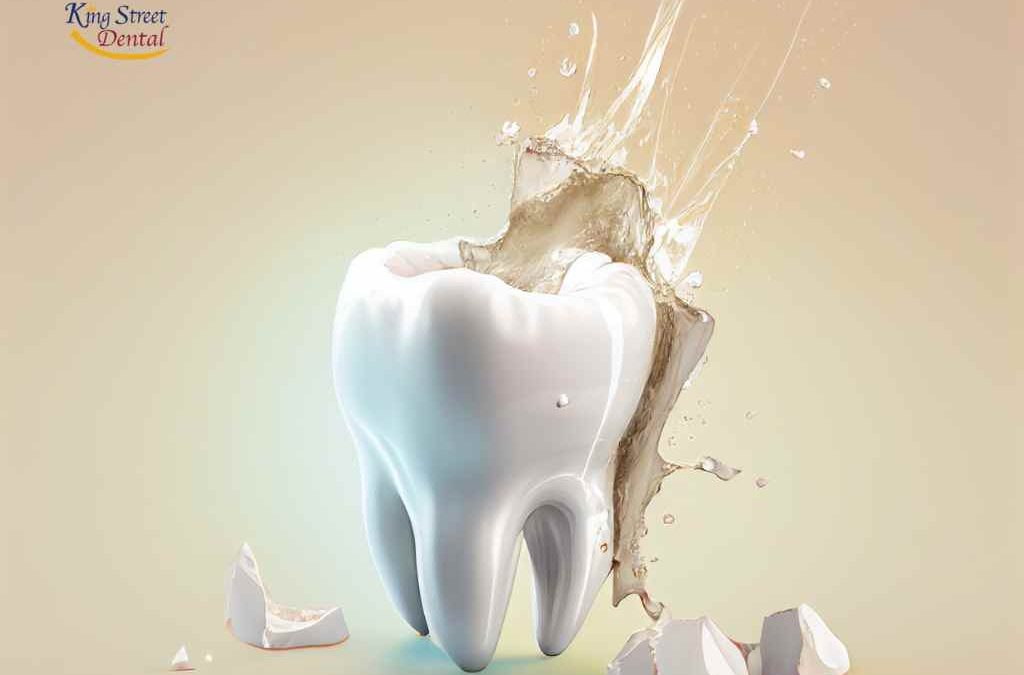Oral health and nutrition are two interconnected aspects that are crucial in maintaining overall well-being. Good nutrition is vital for optimal oral health, while poor nutrition can lead to various problems. In Australia, oral health issues are prevalent, with dental decay and gum diseases affecting a significant portion of the population. Understanding the link between oral health and nutrition can help individuals make informed choices about their dietary habits and improve their oral hygiene practices.
This article will explore the relationship between oral health and nutrition, highlighting the importance of a balanced diet and proper oral hygiene.
The Impact of Nutrition on Oral Health
Nutritional Deficiencies and Oral Health
Maintaining proper nutrition is crucial for optimal oral health. A well-balanced diet ensures the body receives the required nutrients to keep teeth and gums healthy. Nutritional deficiencies can significantly impact oral health, compromising the immune system and increasing the susceptibility to oral infections and diseases.
In particular, inadequate intake of vitamins C and D can adversely affect oral health. Vitamin C deficiency can cause problems like bleeding gums and impaired wound healing. In contrast, vitamin D deficiency can contribute to tooth decay and gum diseases.
Individuals should consume diverse nutrient-rich foods, including fruits, vegetables, dairy products, and lean proteins, to promote oral health. These foods provide the necessary vitamins and minerals that strengthen the immune system, prevent deficiencies, and maintain optimal oral health.
Sugar and Oral Health
Maintaining good oral health involves being mindful of sugar intake and its impact on dental health. Excessive consumption of sugary foods and beverages significantly contributes to dental decay and cavities, which remain prevalent oral health concerns, especially among children and adolescents in Australia.
Sugary snacks, soft drinks, and candies create an ideal environment for harmful bacteria in the mouth to thrive. These bacteria produce acids that erode and damage tooth enamel, leading to tooth decay. Individuals must limit their consumption of sugary foods and beverages to prioritise oral health. Good oral hygiene practices, such as regular flossing and brushing, are equally important.
Individuals can effectively maintain healthy teeth, prevent tooth decay, and safeguard their oral health by reducing sugar intake and implementing consistent oral hygiene practices. Prioritising nutrition and making mindful choices about sugar consumption are essential steps towards promoting optimal oral health.
Oral Health’s Impact on Nutrition
Oral Pain and Nutritional Intake
Oral health problems can have a profound impact on both oral health and overall nutrition. Conditions such as toothaches, gum diseases, and missing teeth can significantly hinder an individual’s ability to chew and eat properly. The pain and discomfort linked with these oral health issues often lead to dietary restrictions, causing individuals to avoid foods that require more chewing. This limited dietary choice can result in nutritional deficiencies and compromise overall health.
To address these concerns, it is essential to prioritise oral health through timely dental care and good oral hygiene practices. Seeking professional dental care ensures that oral health problems are diagnosed and treated promptly, relieving pain and discomfort. Moreover, maintaining proper oral hygiene through regular brushing, flossing, and dental check-ups helps prevent oral health issues from arising in the first place.
By actively managing oral health, individuals can preserve their ability to chew and eat a varied and balanced diet. This, in turn, supports proper nutritional intake, preventing the development of nutritional deficiencies and promoting overall health. Prioritising both oral health and nutrition is vital for maintaining a healthy and well-rounded lifestyle.
Digestive Health and Oral Health
Maintaining good oral health is not only essential for oral hygiene but also plays a crucial role in supporting overall digestive health. The digestive process commences in the mouth, where saliva helps break down food and aids in its digestion. However, poor oral health, such as gum diseases and oral infections, can disrupt this process, negatively impacting the absorption of nutrients.
When oral health is compromised, harmful bacteria associated with gum diseases can enter the bloodstream, leading to systemic health problems. These include cardiovascular diseases and diabetes, which are linked to poor oral health. Therefore, prioritising oral health through regular brushing, flossing, and professional dental care is crucial.
By maintaining good oral hygiene, individuals can prevent complications that may arise from oral bacteria entering the bloodstream, ultimately supporting both digestive health and systemic well-being. Proper oral health practices contribute to the efficient breakdown and digestion of food, ensuring optimal nutrient absorption.
By prioritising oral health as an integral part of overall health, individuals can promote a healthy digestive system, support proper nutrition, and reduce the risk of systemic health issues associated with poor oral health.
Tips for Maintaining Good Oral Health and Nutrition
Balanced Diet
A balanced diet that includes various nutrient-rich foods is crucial for optimal oral health. Incorporate foods from all major food groups, such as lean proteins, fruits, vegetables, whole grains, and dairy products. Avoid excessive consumption of sugary and processed foods, as they can contribute to dental decay. Drinking plenty of water and choosing healthier snacks, such as fruits and nuts, can also promote oral health.
Proper Oral Hygiene
Practising good oral hygiene is essential for preventing oral health problems. Brush your teeth at least twice a day with fluoride toothpaste, and use dental floss or interdental brushes to clean between the teeth. Additionally, consider using an antimicrobial mouthwash to reduce the bacterial load in the mouth. Regular professional cleanings and dental check-ups are vital for detecting and addressing oral health issues early.
Prioritising Oral Health and Nutrition for a Brighter Smile
Maintaining good oral health and nutrition is crucial for overall well-being. The link between oral health and nutrition is evident, as poor nutrition can lead to oral health problems. In contrast, oral health issues can impact nutritional intake. By adopting a balanced diet, limiting sugar intake, and practising proper oral hygiene, individuals can improve their oral health and lower the risk of dental decay and gum diseases. Regular visits to the dentist, such as King Street Dental, for preventive care and treatment, are essential for maintaining optimal oral health. Take charge of your oral health and nutrition today for a brighter and healthier smile!
If you’re looking for a trusted dental clinic in Australia, consider King Street Dental. Our experienced team of dentists provides comprehensive oral health care services, including preventive care, restorative treatments, and cosmetic dentistry. Contact King Street Dental today to schedule your appointment and take a step towards a healthier smile.

